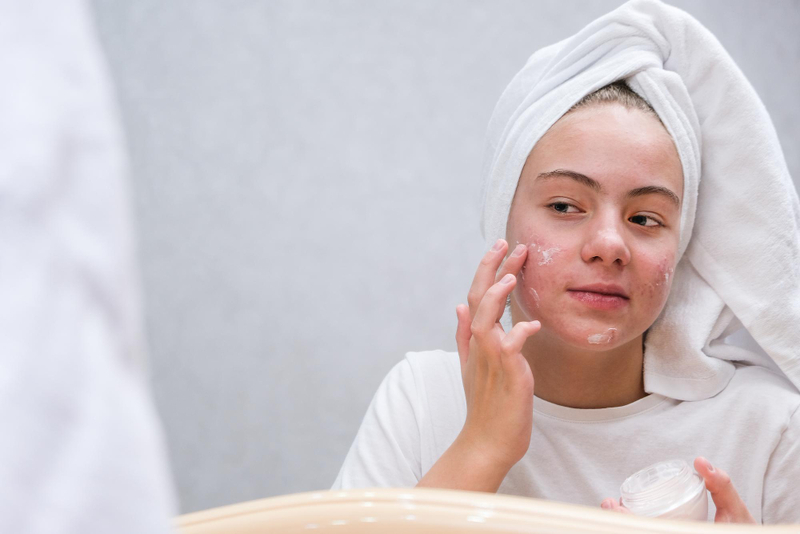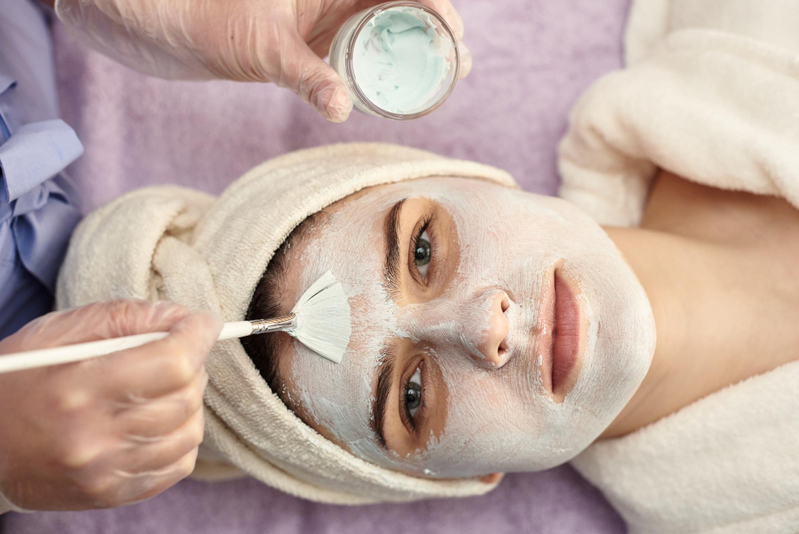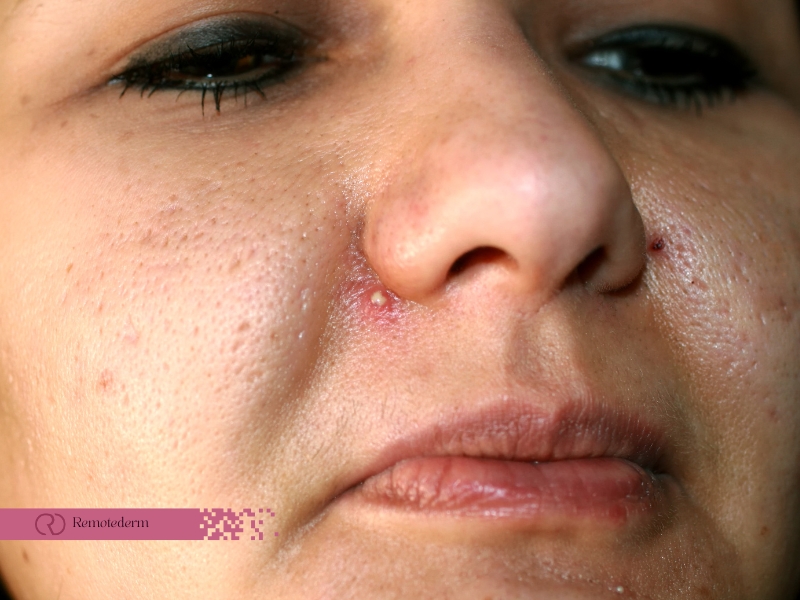Inflamed acne is a common skin concern in Canada, affecting individuals of all ages and skin types. It appears as red, swollen, and sometimes painful blemishes, often filled with pus. Understanding the causes of inflamed acnes and how to manage them effectively is essential for achieving clearer skin. In this comprehensive guide, we’ll explore the causes of inflamed acne, treatment options, and prevention strategies tailored for Canadian skin. We’ll also share tips on how to calm inflamed skin for healthier, more comfortable skin, regardless of the Canadian climate.
What Causes Inflamed Acne?
Inflamed acne occurs when hair follicles are blocked by excess oil, dead skin cells, and bacteria, leading to inflammation and red, swollen blemishes. Several factors contribute to inflamed acne:
Contributing Factors
Acne is influenced by factors like hormonal changes and lifestyle habits. These contribute to its development and severity:
- Hormonal Imbalances: Fluctuating hormones, particularly during puberty, pregnancy, or menstruation, can increase oil production and contribute to acne.
- Bacteria: The bacteria Propionibacterium acnes (P. acnes) can grow within blocked pores, triggering an inflammatory response.
- Diet: Certain foods, such as those with a high glycemic index and dairy products, can exacerbate acne in some individuals.
- Stress: Stress can disrupt hormone levels and lead to increased oil production, potentially worsening acne.
- Genetics: A family history of acne can increase your likelihood of experiencing inflamed acne.
Effective Treatments for Inflamed Acnes
There is a range of treatments available in Canada to help manage inflamed acne, from over-the-counter products to prescription medications and medical procedures. Here are some of the most effective options.
Over-the-Counter Treatments
Over-the-counter treatments are convenient and effective options for managing acne in Canada. Here’s an overview of some common treatments and their effects:
- Salicylic Acid: This beta-hydroxy acid helps to unclog pores and promote skin cell turnover, reducing inflammation and preventing future breakouts.
- Benzoyl Peroxide: Known for its antibacterial properties, benzoyl peroxide can kill acne-causing bacteria and reduce oil production.
- Topical Retinoids: Derived from vitamin A, retinoids help speed up skin cell turnover, preventing the buildup of dead skin cells that can clog pores.

Prescription Treatments
When battling acne, seeking guidance from an acne online dermatology in Canada can be a game-changer. Prescription treatments come into play, proving particularly effective in severe cases or when over-the-counter remedies fall short. Let’s delve into a breakdown of some prevalent options and their impacts:
- Topical Antibiotics: These medications target and kill acne-causing bacteria, reducing inflammation and promoting clearer skin.
- Oral Antibiotics: Oral antibiotics may be prescribed for more severe cases of acne inflamed skin to control bacterial growth and reduce inflammation.
- Hormonal Therapies: Birth control pills and other hormonal treatments can help regulate hormone levels and reduce acne severity.
- Isotretinoin: For severe or resistant cases, isotretinoin can effectively treat inflamed acnes by reducing oil production and shrinking oil glands.
In-Office Treatments

In-office treatments in Canada provide targeted options for managing inflamed acne, especially for those who haven’t seen improvement with other treatments. Here’s an overview of some common in-office options:
- Chemical Peels: Chemical peels involve applying a solution to the skin to exfoliate and remove dead skin cells, helping to reduce inflammation and improve acne.
- Laser Therapy: Laser treatments target acne-causing bacteria and reduce inflammation, resulting in clearer skin.
- Photodynamic Therapy: This therapy uses light and a photosensitizing agent to kill bacteria and shrink oil glands.
How to Get Rid of Inflamed Acne
Managing inflamed acnes involves a combination of lifestyle changes, skincare practices, and treatments. Here are some effective ways to help get rid of inflamed acne:
Lifestyle Changes
Lifestyle changes can play a crucial role in managing acne and supporting overall skin health. Here’s how adjustments in diet, hydration, and stress management can help:
- Healthy Diet: A diet high in fruits, vegetables, and whole grains can help maintain healthy skin. Reducing your intake of high-glycemic-index foods and dairy may also help.
- Hydration: Staying hydrated benefits overall skin health and aids in the removal of toxins from the body.
- Stress Management: Use stress-reduction techniques like meditation, yoga, or exercise to help keep hormones balanced and prevent stress-related breakouts.
Skincare Practices
Adopting a consistent skincare routine is important for managing acne and supporting healthy skin. Here’s how gentle cleansing, moisturization, and sunscreen use can benefit your skin:
- Gentle Cleansing: Use a mild, non-irritating cleanser to wash your face twice a day. Avoid harsh scrubs or soaps that can aggravate inflamed acne.
- Moisturization: Choose a non-comedogenic moisturizer to keep your skin hydrated without clogging pores.
- Sunscreen: Protecting your skin from UV rays can prevent post-inflammatory hyperpigmentation and help your skin heal.
Avoiding Skin Irritants
Avoiding skin irritants is key to managing acne and maintaining healthy skin. Here’s how to do it:
- Non-Comedogenic Products: Choose makeup, sunscreen, and skincare products labeled as non-comedogenic to avoid clogging pores.
- Minimal Makeup: Minimize makeup use or choose oil-free products to avoid exacerbating inflamed acne.
- Hair Products: Hair products containing oils and other potential irritants should be avoided or kept away from the face.

How to Calm Down Inflamed Acne
When dealing with inflamed acne, there are several methods you can use to soothe your skin and reduce discomfort.
Soothing Treatments
Soothing treatments can help relieve discomfort and reduce inflammation associated with acne. Here’s a closer look at some common soothing treatments:
- Cold Compress: Applying a cold compress to affected areas can help reduce swelling and numb discomfort.
- Aloe Vera: Known for its anti-inflammatory and healing properties, aloe vera can soothe irritated skin.
- Tea Tree Oil: Tea tree oil has antibacterial properties that can help calm inflamed acne when applied topically.
Medical Interventions
Medical interventions offer targeted treatments for severe acne when other methods are not effective. Here’s an overview of some common medical interventions:
- Steroid Injections: For severe cases, a dermatologist may administer a steroid injection directly into the acne lesion to rapidly reduce inflammation.
- Drainage and Extraction: In some cases, a dermatologist may perform drainage or extraction of large, painful cysts or nodules to relieve pressure and promote healing.
Final Thoughts
Dealing with inflamed acne in Canada can be challenging, but with the right approach, you can manage and improve your skin’s condition. By following a consistent skincare routine, making healthy lifestyle choices, and seeking professional advice when necessary, you can achieve clearer, calmer skin. Patience is key, as it may take time to see noticeable improvements.
FAQs
- How long does it take for inflamed acne to heal?
Healing time varies depending on the severity of the acne and the chosen treatment. Mild cases may improve within a few weeks, while severe cases might require months of treatment.
- Can inflamed acnes leave scars?
Yes, inflamed acnes can lead to scarring, particularly if lesions are picked or squeezed. It’s important to seek proper treatment and avoid manipulating blemishes.
- Are natural remedies effective for treating inflamed acne?
Some natural remedies, such as tea tree oil and aloe vera, may help calm inflamed acne. However, their effectiveness varies from person to person, and they may not be suitable for severe cases.
- Can inflamed acnes be sign of an underlying health issue?
In some cases, inflamed acne may be related to hormonal imbalances, polycystic ovary syndrome (PCOS), or other underlying health issues.
